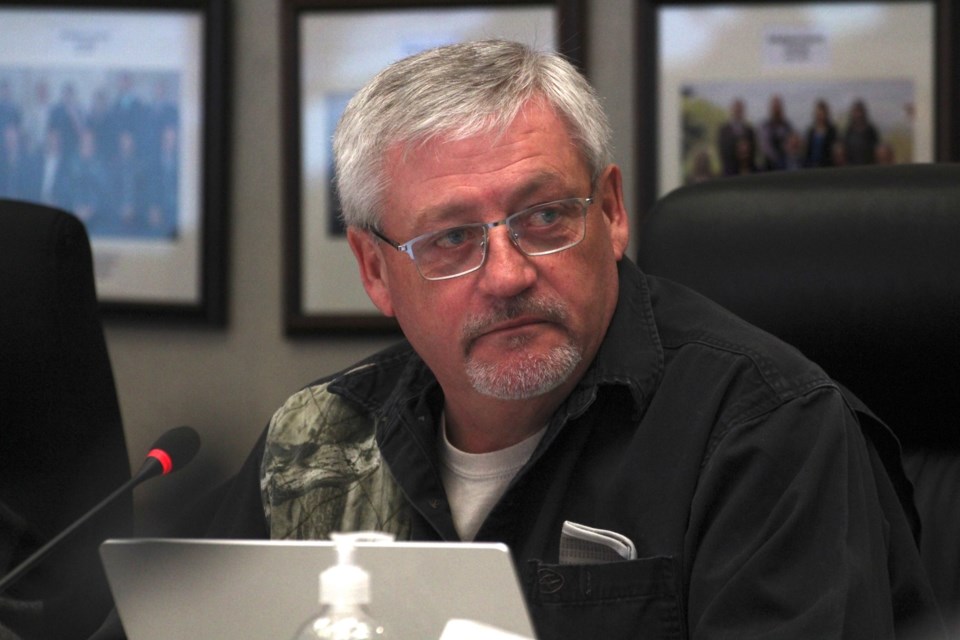ATHABASCA - Athabasca County is going to keep its water infrastructure for the time being after a tentative proposal to hand it off to the Athabasca Regional Water Services Commission (ARWSC) was shelved until after the upcoming municipal election.
County councillors were presented with seven alternative recommendations by Tantus Solutions Group as part of a 100-plus page report on the water and sewage infrastructure.
Using a matrix that rated projects on four objectives — prioritize asset management, manage utility rates to ensure affordability, expand water service, and maintain fair and equal pricing — the report did not recommend ARWSC take over the county’s infrastructure.
“Normally, when we do this, it’s quite obvious what alternative is the best approach. What we’re seeing here is that it’s harder to pinpoint,” said Grant Gabert, a senior consultant with Tantus.
“It also speaks to the fact that we have some of these larger, regional-level types of goals that none of these alternatives really address.”
Instead, Tantus recommended the county explore three alternatives: increased regional collaboration, a revamp of the commission that would contract the work back to one or multiple partner municipalities, or grow the county’s water operations within its municipal structure.
“We want to make sure the county is an active participant in any service expansion project that is occurring in the region, or is at least providing support however that may look,” said Gabert.
The largest risk identified by Tantus was the lack of dedicated infrastructure owned by the water commission. In order to get water to the county’s water fill stations or any other related infrastructure, the commission uses piping owned by the Town of Athabasca.
“If something ever happens in between the water plant and the vault, it could be very detrimental to the commission water going through there,” said Coun. Rob Minns.
“If there’s a boil water advisory in place for the town for some reason in the Cornwall area, that means it's going to follow te water all the way through the commission down to Colinton, Boyle, and Grassland.”
After Gabert’s presentation, CAO Bob Beck encouraged councillors to wait until after the municipal election to dive too much deeper into the project.
“What we would really like to do after the election is sit down with the fresh council and say, “Here’s all the project on our lists, what priority do you want us to do?’’ said Beck.
“What’s happened in the past is we’ve had too many number one projects, and when you have too many that are number one, nothing gets done. With the new council we want to sit down and rank where these are in the list.”
The other side of the coin
ARWSC has been working with the county to figure out some of the possibilities since a 2022 motion from Athabasca County directed administration to explore the transfer. The commission, which is composed of two members from each of the county, town, and Village of Boyle, is always looking to take on the operational side of work to help streamline things said commission chair and town councillor Dave Pacholok.
“We decided from the commission perspective that the more things we can get involved with, the more streamlined we can become. Currently a commission member and a county member has to go to the Wandering River site or Grassland. If you only have one owner, you would just send the one.”
Despite the consultant’s report — which was undertaken on behalf of Athabasca County, and whose recommendations are only meant for the municipality — there has been a progression towards ARWSC taking over operations since its formation in 2010.
“Regional water and operating under the commission model has grown exponentially, so we’re at a place now, and there’s discussions at the provincial level, about where commissions go and what they do,” said ARWSC manager Jamie Giberson.
“There’s not many models where the commission moves in and takes over the distribution and wastewater collection systems. That’s more of an Epcor, which is a municipal corporation where they’re working for profit.”
Regardless of the direction the commission goes from here, Giberson said he was confident the region would be able to continue its innovative work.
“This region has always been ahead of the game, we were new at the regional plant, we were new with the regional line, and it's worked out very well,” he said.



